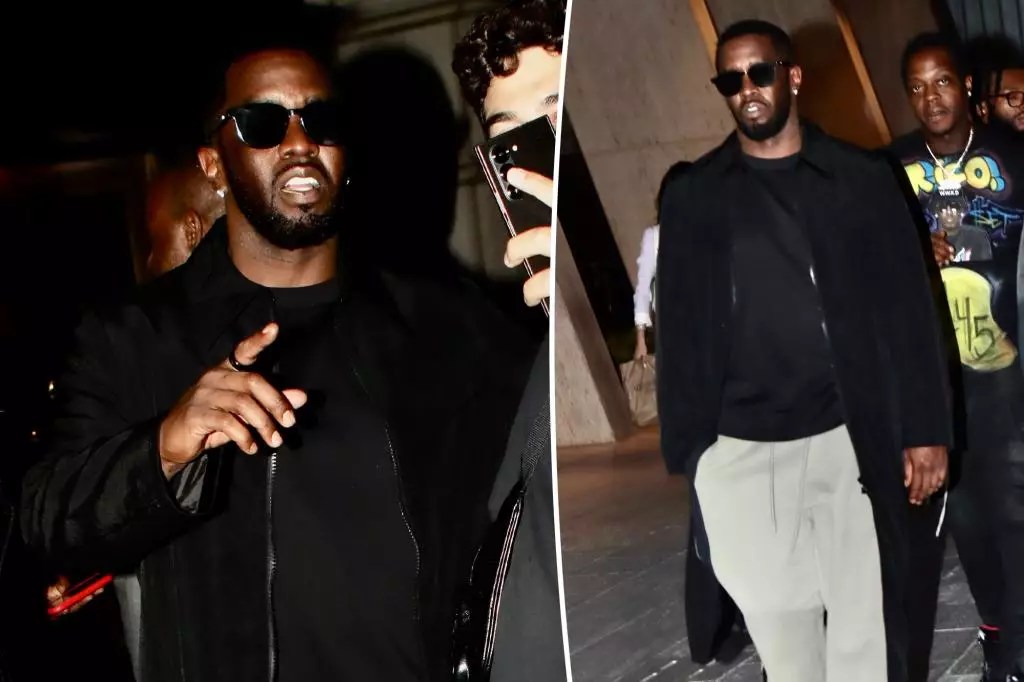In recent months, the music industry has been abuzz with news surrounding Sean “Diddy” Combs, as his name has become synonymous with serious legal troubles, including allegations of sexual misconduct and abuse. As the hip-hop mogul faces law enforcement scrutiny, it’s crucial to dissect the events leading up to this juncture and understand their broader repercussions on both his empire and society’s perception of celebrity accountability.
On a seemingly ordinary day, Diddy’s life transformed dramatically as he was arrested at 26 Federal Plaza in New York City. While the charges brought against him remain somewhat ambiguous at this time, his attorney, Marc Agnifilo, has publicly asserted that there’s an underlying injustice in how the prosecution is being handled by the U.S. Attorney’s Office. This sentiment reflects not only a defense of Combs’ character but also a broader critique of the legal system when it comes to high-profile celebrities.
Agnifilo’s statement paints a picture of Diddy as a multifaceted individual—an entrepreneur, a family man, and a philanthropist. However, Agnifilo was quick to underline the greater necessity for society to reserve judgment until all facts are presented, a call that resonates with the ongoing national dialogue around the presumption of innocence in legal matters.
The legal woes for Combs began to escalate following the allegations made by his ex-girlfriend, Casandra “Cassie” Ventura, who accused him of rape and physical abuse in November 2023. Her lawsuit detailed a disturbing pattern of misogynistic behavior, encapsulating claims of forced sexual encounters with male prostitutes and incidents of rape. This lawsuit drew immediate attention and, notably, was settled the day after it was filed—a move that has raised eyebrows and prompted further scrutiny of Combs’ conduct during their decade-long relationship.
Not long after, in 2024, a disturbing video surfaced, showing Combs in a compromising situation, reportedly abusing Ventura. His subsequent acknowledgment of his behavior—where he expressed disgust and took responsibility—contrasts sharply with the numerous allegations that have since emerged, creating a complex picture of his public persona versus his private actions.
Ventura’s allegations did not exist in isolation; they opened the floodgates for other women to share their experiences with Diddy. Joi Dickerson-Neal and Liza Gardner surfaced, each recounting troubling interactions with Combs dating back to the 1990s. Such testimonies, coupled with claims of gang-rape and sex-trafficking, reveal an alarming trend pointing towards systemic issues of power dynamics and sexual violence in the entertainment industry.
The implications of these allegations extend beyond Combs’ personal life; they underscore an urgent discourse surrounding violence against women and the long-standing failure of systems designed to protect victims. The public response to Combs’ legal battles serves as both a mirror and a catalyst for societal change, as numerous individuals question the mechanisms in place that have historically shielded powerful figures from accountability.
As the case against Diddy unfolds, it symbolizes a critical juncture in the conversation about celebrity accountability. While Combs’ attorney solicits patience and understanding from the public, the stakes feel immense; victims are seeking justice, and society is increasingly unwilling to condone silence in the face of violence and abuse.
The societal ramifications of Diddy’s alleged actions spotlight the tension between fame, wealth, and personal morality. It raises questions about the protective bubbles surrounding celebrities and the imperative need for systemic overhaul that both supports survivors and holds powerful individuals accountable for their actions.
As Sean “Diddy” Combs navigates the turbulent winds of legal battles, the unfolding story serves as a vital reminder of the complexities within celebrity culture and the crucial necessity of justice and accountability in our society. This situation not only affects those directly involved but also casts a long shadow over the entertainment industry as a whole, as calls for change continue to grow louder and more insistent.


Leave a Reply